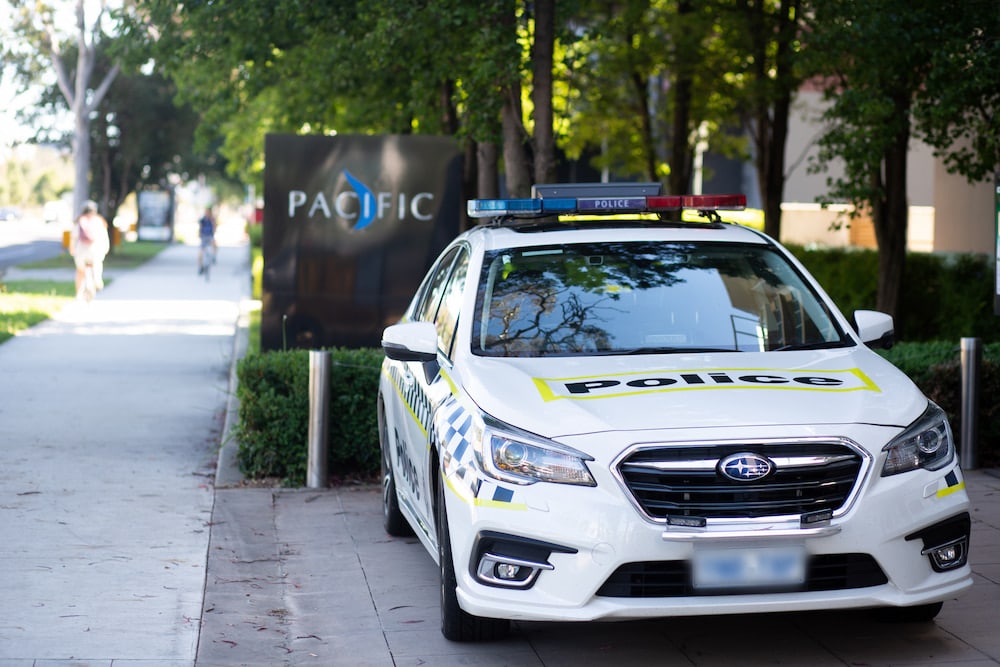There are at least 350 people who visited WA COVID-19 hotspots in self-quarantine in the ACT, according to an ACT Health spokesperson.
By 9.30am, ACT Health granted 26 exemptions for non-ACT residents to enter ACT.
As of 1pm today, Tuesday 2 February, there are no new cases of COVID-19 community transmission in ACT, NSW, Queensland, Victoria or NT, with updates from Tasmania, SA and WA pending.
On Sunday, WA Premier Mark McGowan confirmed a hotel quarantine security guard infected with COVID-19 unknowingly risked community transmission in Perth and surrounding regions for six days from 25 January.
The worker visited at least 16 venues while infected with what was confirmed to be the virulent UK strain, posing the first major risk to WA’s impressively clean slate in terms of community transmission.
Within 24 hours, 66 close contacts were identified, 11 of whom were deemed high-risk close contacts and moved into hotel quarantine.
The general population in WA had been COVID-19 free since the second quarter of 2020, which Mr McGowan attributed to his hard domestic border restrictions which began in April 2020.
NSW Deputy Premier John Barilaro said the hotel quarantine leak proved WA’s hard domestic border was “pointless”, which Mr McGowan firmly refuted.
“Clearly borders help. I think that is staring us in the face, it’s just common sense,” he said. “Unfortunately, NSW I don’t think has learned that lesson.”
At 2pm yesterday afternoon, the ACT border closed to non-residents who had visited a COVID-19 affected area in WA since 25 January.
ACT Health granted exemptions for Federal parliamentarians who travelled from WA to attend the first week of Parliament, and were considered essential workers.
But parliamentarians and members of the public who arrived in Canberra from WA on Sunday evening were not legally bound by a public health order, and Dr Coleman said the people who were in self-quarantine between Sunday evening and Monday afternoon were doing so out of “the goodness of their heart”.
On Monday morning, Australian Attorney-General and leader of the House, Christian Porter, attended a swearing-in ceremony at the High Court and was photographed without a mask.
Dr Coleman declined to comment on Mr Porter’s movements, which were legal.
CHO says hotel quarantine is safe in ACT
Yesterday, ACT Chief Health Officer (CHO) Dr Kerryn Coleman assured Canberrans the scope of the ACT hotel quarantine intake was unlikely to pose a risk to the public.
“The ACT only ever have one flight at a time, and we have a break in between,” she said.
Dr Coleman noted the ACT and WA quarantine systems were different.
“For example, we will be making sure that daily saliva testing will be conducted on all quarantine workers in hotels.”
Looking to the future, she said a “three-to-five-day stocktake period” when an interstate outbreak occurred would enable good information to be collected, community testing to be focused, and risk management.
“The realities of COVID-19 are that we need to continue responding to the challenges as they present,” Dr Coleman said.
Following the news of COVID-19 detected in ACT sewage recentlyl for the first time, Dr Coleman said between 700 to 1,000 tests daily would “give us confidence in our surveillance” of the situation in the ACT.
She said there was no evidence the positive wastewater detection was an undetected active case, but testing was still crucial.
“If you live in, work in, or have recently visited the Belconnen area, I urge you to get tested for COVID-19 if you are experiencing even the mildest of symptoms, and self-isolate until you receive a negative result.
“If you have recently travelled outside the ACT, this is especially important for you.
“As we have seen around Australia, the COVID-19 situation can change quickly, so it is important we keep being vigilant to keep the ACT community safe,” Dr Coleman said.
For the latest advice visit the ACT Health COVID-19 website.



